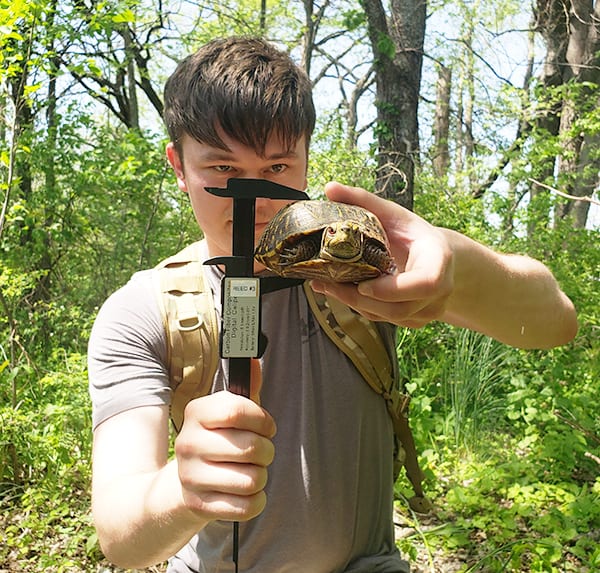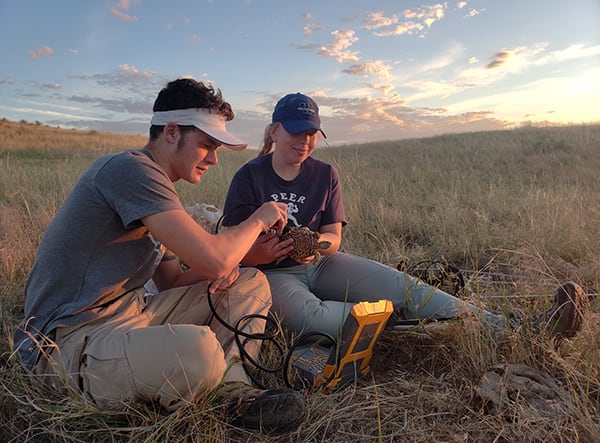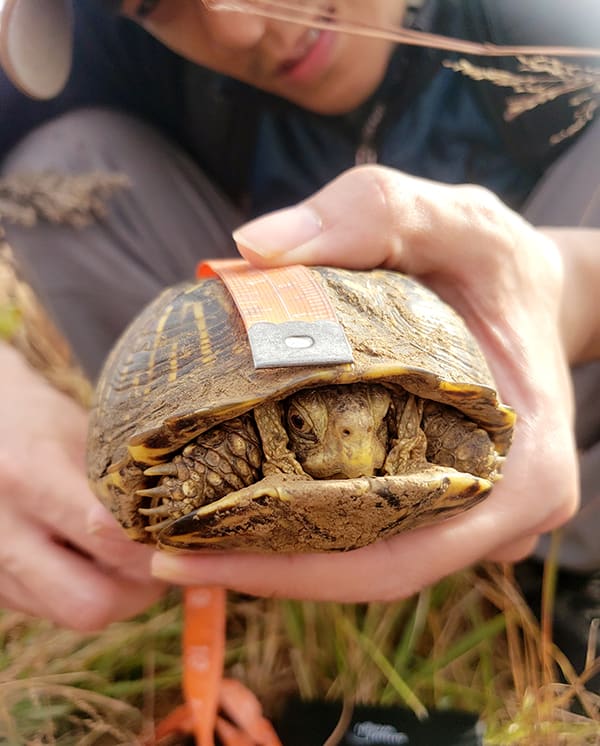
The Adopt-A-Turtle program is back! This year we are excited to announce the Adopt-A-Turtle program helped support the largest number of research students yet: more than 30 research students in 2022 plus dozens more for field laboratory courses and various campus clubs/organizations! The generous donors of the Adopt-A-Turtle program made this possible. We hope your Day of Giving Gift can help us continue to grow and expand the Washburn Turtle Research Team via the Adopt-A-Turtle program again in 2023.

This year we plan on sending the largest number of students to a remote field station in Western Nebraska over the summer to conduct research on our study population there while simultaneously having students conduct research on our growing field sites in both Topeka and Lawrence populations. Donations will primarily help pay for radio transmitters ($190 apiece) to enable us to continually track individual turtles, telemetry equipment (used to track said turtles) and student housing at field stations.

Donors to the Adopt-A-Turtle program receive a triannual newsletter highlighting student and research achievements during the turtles’ active season. Donors of at least $100 will also receive an official certificate of adoption for a unique ornate box turtle that is being researched by students and Assistant Prof. Ben Reed. Aside from using the equipment for students enrolled in biology classes and for research, the equipment and turtles with radio transmitters are also used for outreach events to help increase public awareness for the ecological importance of these magnificent but declining populations of turtles while also providing kids and adults alike the opportunity to learn and engage in citizen science events such as doing radio telemetry to locate animals.
Reed and his students present at schools, zoos, after-school clubs and summer camps. The overall goal of his box turtle program at Washburn University is to create opportunities for more hands-on and engaging classroom and research experiences for students while also building public awareness and appreciation for box turtles, which should ultimately help protect them for future generations to enjoy and continue to learn from.


